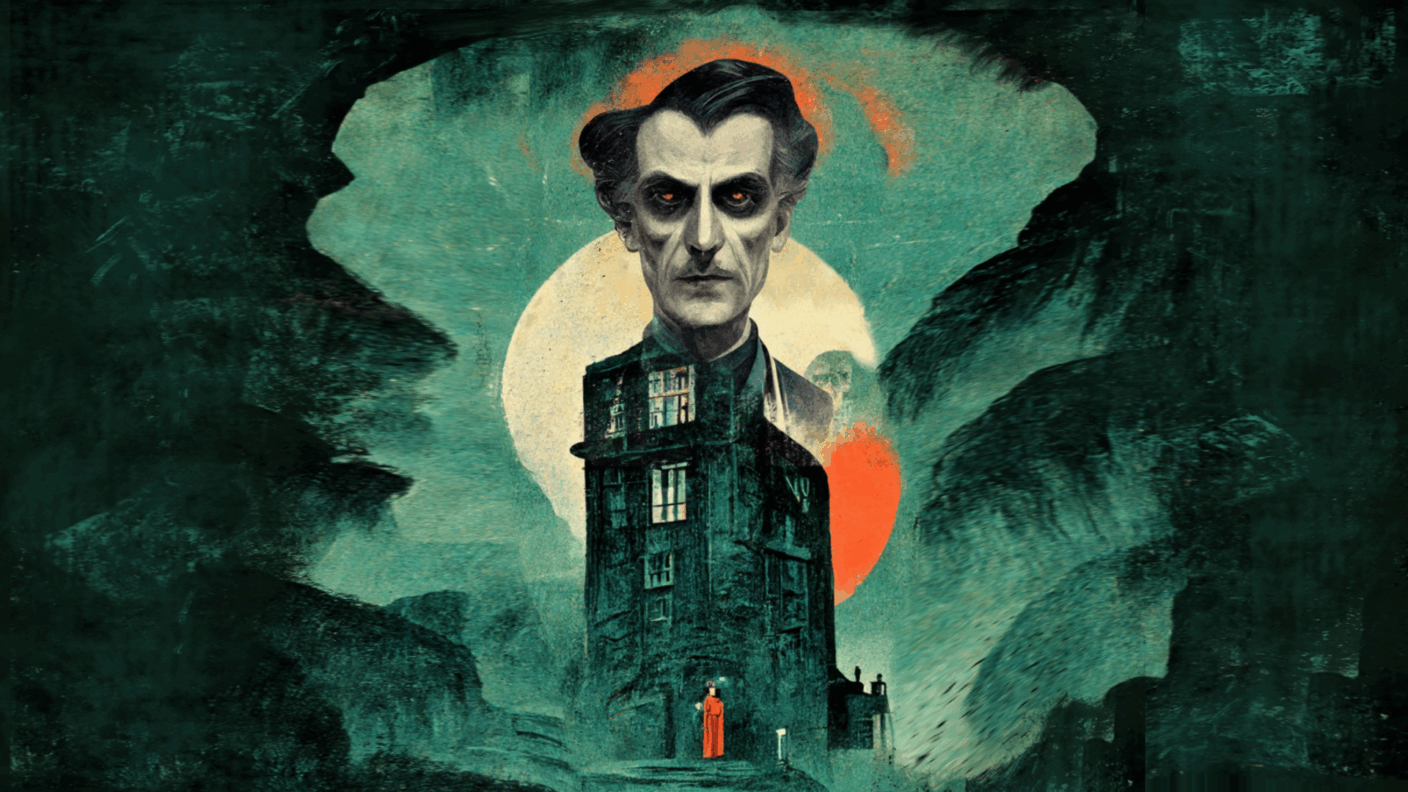‘Patient 4620’ Brings Immersive Theatre Experience With Narration, Music And Student Artwork

An immersive theatre experience for intimate audiences will begin a five-night run Oct. 2 at the Texas A&M College of Performance, Visualization and Fine Arts.
The horror show “Patient 4620” by Dread Falls Theatre continues through Oct. 6 at the Black Box Theater in the Liberal Arts and Arts and Humanities building, with five performances each night (5, 6, 7:30, 8:30 and 9:30 p.m.). Anyone can reserve a free ticket to the 45-minute show on the time-slot form. The show is suitable for ages 15 and up.
The show takes the audience on a journey through the mind of a missing fictional artist, Gretel Sauerbrot, through audio storytelling and art installation. Before her disappearance, Sauerbrot was admitted to Raventhorne Institution, a psychological institute, and presumed to be dead. The audience is guided through a retrospective of her artwork to learn about her life. But as the story progresses, things become questionable.

“Patient 4620” was created in 2018 by Victoria Snaith, founder and creative director of Dread Falls Theatre, as an innovative and accessible immersive theatre experience. Snaith, who lives near London, is bringing the show to Texas for the first time.
Upon entry, the audience member is given a headset that plays an audible narration of the story as they walk the stage through an art gallery, Snaith said. By the end of the show there is a mystery set change. The audience has opportunities to play a part in solving the case by choosing to alter or tamper with the displayed artwork, or choosing to only observe, she said.
“That is the beauty of immersive theatre,” Snaith said. “You can be a passive spectator and just enjoy it in a more traditional theatre experience, but it is a bit more daring when there is something you can participate in as well.”
Dr. William Connor, lecturer for the Performance Studies program, produced the music for the show, which is intermingled with dialogue from the voice actors. Connor said he hopes participants will be excited about the capabilities of immersive theatre and be enticed to learn more about it.
“It is a huge artistic trend, and it is something for anybody studying theatre, visualization, artificial intelligence or performance,” Connor said. “Immersive theatre is current, and if you don’t experience it as a university student, you are way behind the curve. It’s important to get this exposure to students and faculty.”
Viewers will experience artwork from various artists as they journey through Sauerbrot’s life, with some of the sculptures produced by Texas A&M students through Research Techniques in Visualization classes, taught by Tina Budzise-Weaver, associate professor.
Snaith said “Hansel and Gretel” was one of the influences for the show, as she pondered what adulthood would be like for the children and what they would remember about their traumatic experience. Memories may become hazy as time passes, she said, and people often remember shared experiences differently.
“The initial thought process went from these stories that we tell ourselves, memories mixed with fiction and the truth, and evolved to show humans are the real monsters,” she said. “People are far scarier than anything we can tell in a story.”
In 2020, Snaith decided to revamp “Patient 4620” with the emergence of the COVID-19 pandemic, shifting the plot to represent mental health challenges.
“The thought process evolved to a show that speaks to anyone who has been battling the system for representation,” she said. “The show is a slightly dark look at battling for representation and wanting to be heard and wanting to be believed.”
With more than 10 years in theatre arts, writing and directing, Snaith said she hopes the immersive theatre experience can inspire actors and writers, while deconstructing horror movie tropes.
“I hope I can introduce immersive theatre in this tourable fashion and avoid stigmas in horror — like gender representation, sexuality and race — and try to show students a way to write stories that are not stigmatizing,” she said. “But rather, write in a way that it still affects them or their audience, as these narratives linger and continue to creep in their brains.”
Snaith will also host an immersive theatre workshop on Oct. 11 and 12 from 7 to 9 p.m. at the Black Box Theater. Participants will develop original elements of immersive performance, then present their work on Oct. 13 at 7 p.m.
To register, email Jim Ball, associate dean for industry and community engagement, at jimball@tamu.edu.
